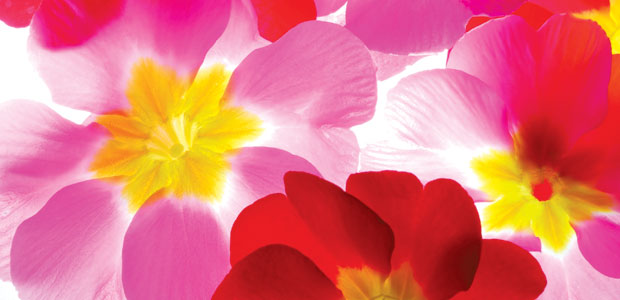Advertisement
The Lessons of Spring
Spring is a sensuous teacher. Every year she steps out of the darkness and cold and seductively dances around us. She embraces us with her light and warmth. She intoxicates us with her fragrance. Like a potent elixir, spring revives our hope. She breathes life into death and teaches us the lessons of renewal and … Continued

Spring is a sensuous teacher. Every year she steps out of the darkness and cold and seductively dances around us. She embraces us with her light and warmth. She intoxicates us with her fragrance. Like a potent elixir, spring revives our hope. She breathes life into death and teaches us the lessons of renewal and rebirth.
Every year, on the 21st day of March, the vernal equinox marks the beginning of longer, brighter days. The buds of plants and trees burst forth, birds trill, bees buzz, and humans walk about with a bit more spring in their step and sparkle in
their eyes.
Let there Be Light
Feeling good in spring is more than psychological. The longer light period of spring days has the power to change our biochemistry in positive ways. The increased sunlight exposure affects hormonal and metabolic functions. We feel more optimistic and resilient; even our reproductive patterns are affected by the light of spring. Just as plants turn to capture the light of the sun, we humans also depend upon and crave sunlight for our mental and physical well-being.
Springtime Blessings and Rituals
Early humans revered and celebrated the coming of spring. Living close to the earth, their quality of life, their very survival, was dependent upon seasonal cycles. The spring cycle revolved around the preparation and planting of the crops. It is no great wonder that worldwide, cultures developed rituals and religions to pay homage to the gods and goddesses they believed controlled the success or failure of their crops and herds.
Ancient Romans celebrated spring with an annual event called Floralia. This feasting celebration, held on the first day of May, honoured Flora, the goddess of plants. Flower garlands were wound around the columns of the temple erected to Flora. Green branches were gathered and brought into the home as a symbol of the new life of spring coming again to the world. Girls and women donned white robes and paraded through the streets scattering flower petals. Children made dolls of the goddess and decorated them with flowers. In Canada and in many other countries, a variety of May Pole festivities are a modern remnant of these original May Day celebrations.
On this same day, Druid priests celebrated the Celtic festival of Beltane throughout the British Isles. People built bonfires on the eve of May 1 and herded their cattle between the fires to protect them from disease. Afterwards, the fire ashes were scattered across the fields to ensure a good harvest.
A French springtime ritual from olden times was to rise at dawn, go into the woods, and find the first bloom of fragrant lilies-of-the-valley. Considered lucky, the collected flowers were pressed and given to friends as a good luck charm.
Today’s bachelor may present a springtime bouquet of fresh flowers to his beloved. But the bachelor of medieval Switzerland took springtime courtship rituals to another level. He found a pine tree growing in the forest, carefully dug it up, and replanted it in front of the house of his sweetheart as a token of his affection.
Holy Days of Spring
Easter Sunday, the Christian holiday commemorating the resurrection of Christ, shares a common message of hope and renewal with Jewish Passover, the annual springtime festival that marks the liberation of Hebrew slaves from Egypt.
All of the world’s religions share a foundation of faith rooted in the timeless lessons taught by Mother Nature in the spring. If we are receptive students, these lessons will forever teach us to appreciate and celebrate the never-ending circle of life.
A Springtime Ritual
A ritual is anything you choose to observe as a mindful and deliberate way to focus your energy. Here are a few possibilities to help get you started creating your own spring rituals.
- Lie stomach down on the grass, and listen to the hum of the earth.
- Plant pussy willows.
- Pick your lawn’s (unsprayed) dandelion greens and eat them.
- Listen to classical composer Antonio Vivaldi’s Spring concerto.
- Plant lettuce and flower seeds.
- Greet the day by saying “thank you” to Mother Earth for the gift of spring.
- Dance barefoot on the grass.
- Thank your mother for giving you life.
- Watch the sunrise on Easter morning.
- Make a spring wreath of green boughs.




